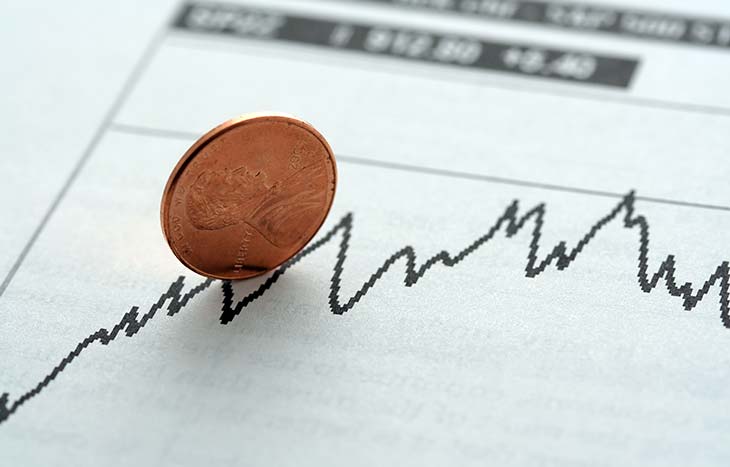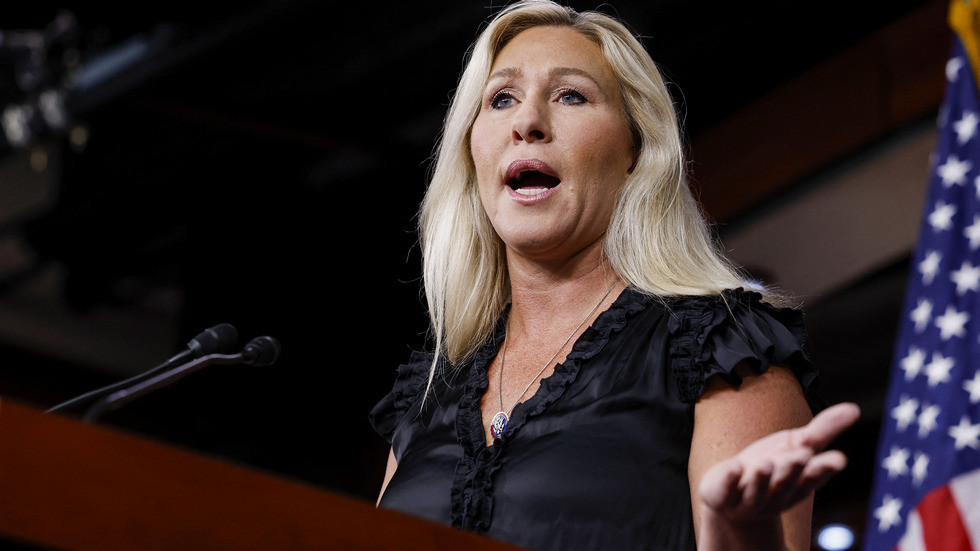Good morning. This article is an on-site version of our FirstFT newsletter. Sign up to our Asia, Europe/Africa or Americas edition to get it sent straight to your inbox every weekday morning
SK Hynix has called new US efforts to limit technology exports to China “painful” as the company slashed capital spending over the next year to battle “unprecedented” slowing demand for chips used in electronics.
The South Korean chipmaker yesterday cut its 2023 capital expenditure by more than 50 per cent after reporting a 60 per cent drop in third-quarter operating profit owing to higher inflation and sluggish global growth, missing market expectations.
SK Hynix broke ranks among South Korean companies and admitted publicly that, despite the waivers in place for now, in the future it might not be able to straddle the Sino-American divide.
The chipmaker said it expected difficulties upgrading its plant in Wuxi, China, as a result of Washington’s latest export controls targeting China’s semiconductor industry. The Wuxi plant accounts for nearly half of SK Hynix’s production of DRam chips used in computers, smartphones and servers.
“Recently, a lot of geopolitical issues are affecting our business decision-making and the related restrictions are painful to us,” Noh Jong-won, the company’s president, told analysts during a conference call.
The South Korean manufacturer followed rivals including US-based Micron Technology and Japan’s Kioxia Holdings in cutting production after memory chip prices slid about 20 per cent in the third quarter.
Thanks for reading FirstFT Asia. What do you think about US efforts to limit technology exports to China? Tell me what you think at [email protected] and your response may appear in a future edition of FirstFT. — Emily
Five more stories in the news
1. Meta shares fall, warns of ‘near-term challenges’ to revenue Meta reported a deepening slowdown and warned that fourth-quarter revenues could come in lower than expected, as Big Tech groups continue to face a reckoning from a digital advertising slump and tough macroeconomic conditions. Shares in Big Tech stocks tumbled on Tuesday after Alphabet reported an unexpectedly severe slowdown.
2. Singapore proposes crypto consumer protection rules In Singapore, which has a record of being a welcoming environment for the crypto industry, regulators have proposed restricting retail investors from borrowing money or using credit cards to buy cryptocurrencies and from lending out their digital tokens in search of yields. The move comes after a series of high-profile crypto failures linked to the city-state.
3. Iranians marking Amini’s death clash with police Iranian riot police clashed with protesters as thousands of people took to the streets and gathered at university campuses across the Islamic republic to mark 40 days since Mahsa Amini died in police custody. The internet was shut down in Amini’s hometown of Saqqez as the authorities sought to quash unrest.
4. Netherlands accuses China of operating ‘illegal’ police stations Local broadcaster RTL Nieuws reported this week that offices in Amsterdam and Rotterdam that were set up to help Chinese nationals with administrative tasks, such as obtaining official documents, had also been used to track and harass critics of Beijing.
5. China shipping group allowed stake in Germany’s biggest seaport The German government has agreed to allow Chinese shipping conglomerate Cosco to take up to a 25 per cent stake in Tollerort container facility — one of several terminals that comprise the port of Hamburg. The deal is a compromise, agreed at the insistence of German chancellor Olaf Scholz, after opposition on national security grounds.
The day ahead
South Korea Q3 GDP figures Third-quarter growth data will be released at 8am local time. The country’s economy is expected to have slowed to a near halt, according to a Reuters poll of economists. (Reuters)
Central bank rate setting meetings The Bank of Japan’s rate-setting committee begins its two-day meeting with the country’s ultra-loose policy expected to be maintained. The European Central Bank, meanwhile, is set to announce its next monetary policy move today with expectations high for a 75 basis point increase.
Results Earnings season marches on with the following companies among those set to report results: Amazon.com, Anglo-American, Anheuser-Busch InBev, Apple, Carlsberg, Caterpillar, Comcast, Credit Suisse, Danone, Fujitsu, HelloFresh, Intel, Lufthansa, Lloyds Banking Group, Mastercard, McDonald’s, Merck & Co, Samsung, Shell, Shopify, Southwest Airlines, TotalEnergies, Unilever and more.
Thank you to readers who took our poll yesterday. Among respondents, 47 per cent said they have adjusted their spending habits due to rising inflation.
What else we’re reading
Asian family offices buy into crypto Weak returns from traditional portfolios have made digital assets more attractive to Asian family offices, despite speculation about whether crypto prices have bottomed out. “We never lost interest in [crypto],” said Keith Wong, chief executive of Winland Wealth Management, a Hong Kong-based multifamily office.
Pakistan seeks ‘justice’ after floods When the Indus river burst its banks during heavy rains and flash flooding in late August, the disaster put the country at the forefront of an international debate about how to pay for adaptation to the ravages of global warming — and who should pick up the bill.

How Bolsonaro built a durable right-wing movement With Brazilians heading to the polls on Sunday, incumbent president Jair Bolsonaro is closing the gap on favourite Luiz Inácio Lula da Silva. Whether he wins or loses, Bolsonaro has forged a durable right-wing movement that blends Brazilian conservatism and nationalism with American-style culture war politics and social media battles.
What does the music business do with Kanye West? The world’s largest music companies are scrambling to contain the fallout from a furore over anti-Semitic comments made by Kanye West, condemning the rapper’s remarks despite continuing to host his songs on their platforms.
Who’s who in Team Sunak Rishi Sunak yesterday became Britain’s third prime minister in the space of two months and immediately started to assemble a team to tackle “the profound economic crisis” facing the country. Political correspondents Jim Pickard and Sebastian Payne explain who’s who in the new “unity cabinet”.
Film
Seemingly banned merely for spotlighting the hard lives of the rural poor, the sleeper hit Return to Dust appears a snapshot of China’s political climate — and a symbol of the vulnerability of art.
Thank you for reading and remember you can add FirstFT to myFT. You can also elect to receive a FirstFT push notification every morning on the app. Send your recommendations and feedback to [email protected]
Recommended newsletters for you
The Climate Graphic: Explained — Understanding the most important climate data of the week. Sign up here
Long Story Short — The biggest stories and best reads in one smart email. Sign up here
















